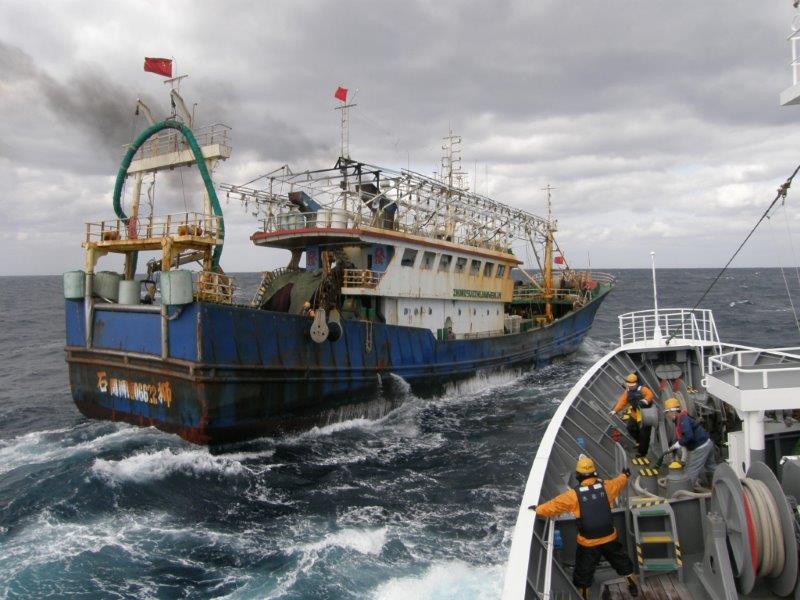
Illegal fishing has surpassed piracy as a Coast Guard global concern in the maritime domain, the service’s top officer overseeing response policy said Wednesday.
“The Coast Guard has been in the [fishing] enforcement game for a long time,” said Rear Adm. Jo-Ann Burdian. Most recently it started with enforcing the ban on using high seas drift nets, roughly the size of a football field, that were rapidly depleting fish stocks.
Illegal, unreported and unregulated fishing globally has had cascading effects on many nations’ food security and led to conflict on the oceans, as has occurred between Chinese fishing fleets and Filipino fishermen, she noted during a forum at the Center for Strategic and International Studies.
Illegal fishing, when combined with climate change’s impact on supply and rising sea levels, is also setting off a “crisis of regular migration,” as seen in the Caribbean, Burdian said.
Fishing “is the fundamental pillar [for] how [many of] these countries are sustaining themselves,” said Kelly Kryc, the deputy assistant secretary for international fisheries at the National Oceanic and Atmospheric Administration.
Maxine Burkett, the deputy assistant secretary of state for oceans, fisheries and polar affairs, said these “cascading, overlapping issues [of supply and environment] are going to shape foreign policy.” The situation is “especially acute now,” with criminal networks increasingly engaged in trafficking illegal catches, putting further stress on supply.
Natural issues – from depleted fishing stock to rising temperatures – are global issues, Kryc added. “The United States government cannot solve this problem alone” because “these are problems without borders.”
Kryc and the other panelists agreed. “We work with those who are willing to work with us on the problem at the source,” particularly in enforcement, Kryc said. Burkett said these partnerships have to come with no strings attached and must be continuous to be effective.
The panelists were measuring the impact of the Maritime SAFE Act. In introducing the bill that is now law, Sens. Christopher Coons (D-Del.) and Roger Wicker (R-Miss.) said, illegal, unregulated and unreported fishing “is an issue that not only poses a serious threat to our own national security but also contributes to instability in regions important to United States interests,” Coons said in a 2019 statement. “This legislation allows the United States to combat a multi-billion dollar criminal industry that undercuts the economic livelihoods of legitimate fishermen and threatens food security for communities around the world.”
Using the 14th Coast Guard District, headquartered in Honolulu, as an example of how the service is working with other nations, Burdian said it’s training smaller island nations’ maritime forces to perform enforcement operations and monitor their exclusive economic zones.
In addition to those larger missions, she said the Coast Guard provides basic help like just basic engine support.
The question is “how can we be better partners [with other nations in the Pacific, off the coasts of Central and South America and Africa] in obtaining domain awareness” that will add law enforcement, Burkett said.
Burdian said many nations use the U.S. Coast Guard as a model for how to conduct enforcement to protect fisheries. Kyrc added that for many nations, “fish is the primary currency” they rely on to feed their citizens and preserve their cultures.





